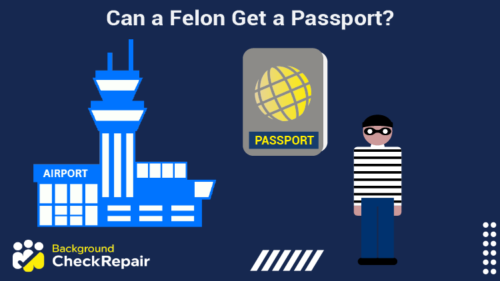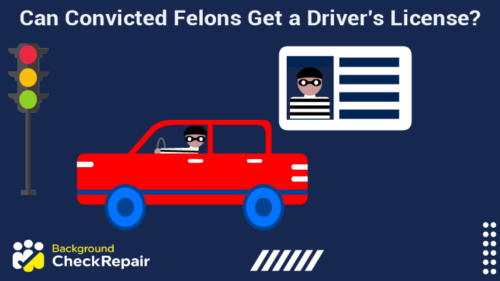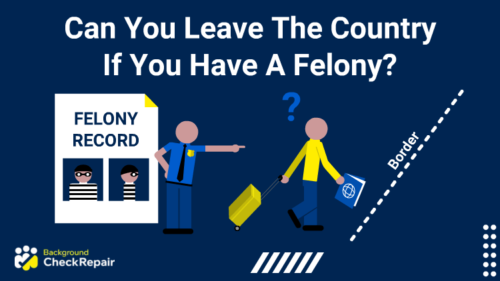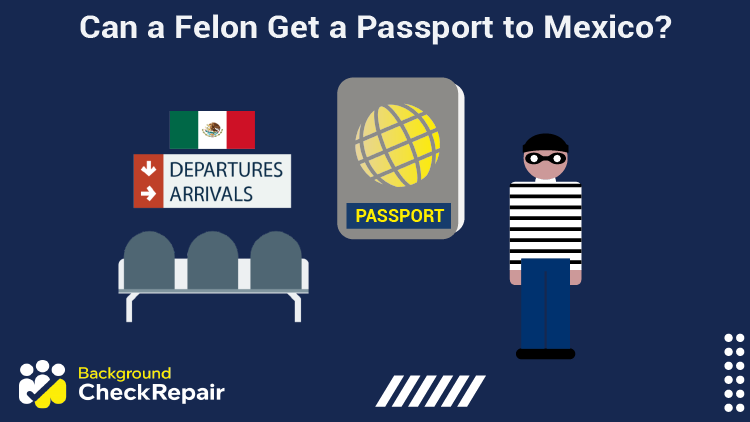
Many former convicts ask, can a felon get a passport to Mexico?
The travel restrictions into Mexico from the United States are a little tricky. However, the latest laws outline how immigration officials and passport authorities determine who may cross the border into Mexico.
Mexico may prevent entry to anyone who has committed what that country deems a “serious crime.” Loosely interpreted, this means any crime that had a ‘significant’ negative impact on society.
This means that to travel to Mexico, former felons will likely be prohibited from entering the country. However, that won’t necessarily prevent them from obtaining a passport.
The two main considerations when asking can a felon get a passport to Mexico are whether or not a convicted felon can get a U.S. passport and the entry and exit requirements outlined by the country itself.
This complete guide answers those questions and explains the conditions that will prohibit someone from traveling south of the boarder, and reentering the U.S.
Can a Felon Get a Passport to Mexico?
When asking can a felon get a passport to Mexico, individuals should first realize that there are really two different questions. American passports are awarded based on domestic laws regarding who is eligible to obtain a passport.1 These rules are enforced without regard for the entry requirements of other nations.
In short, simply because you have a passport does not necessarily mean you will be able to gain entry into other countries, the passport basically allows you to leave the United States but does not automatically allow you to enter another country.
In regards to what felonies will deny a passport application, the answer is very simple. The only felony conviction that will result in an automatic disqualification of the individual’s passport application is those involving drug trafficking. Most individuals convicted of drug trafficking, especially serious charges like international drug trafficking will not be able to obtain a U.S. Passport.2
However, to get into Mexico, the laws forbid former felons from entry.
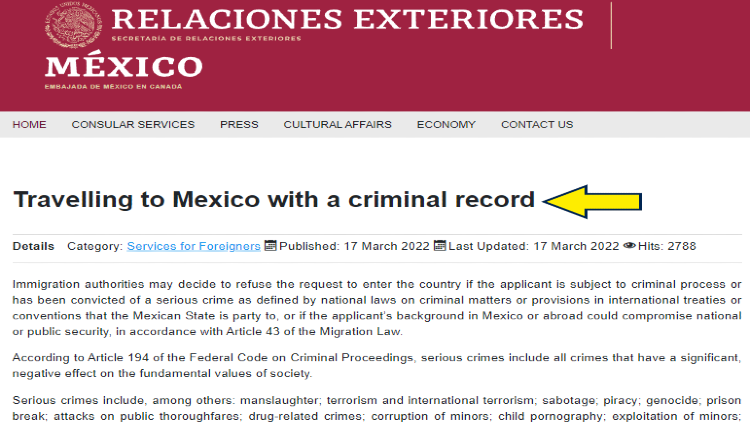
Mexico travel restrictions include anyone who has been convicted of a serious crime, which is defined as a negative impact on society.
With that being said criminal convictions are not the only thing that individuals will need to worry about when it comes to passport disqualifications.3
As far as criminal activity is concerned, individuals can also be denied a passport for the following reasons:
It is also fairly common for individuals to believe there is a waiting period involved for individuals with criminal records, and many people will be wondering how long before a felon can get a passport to Mexico. However, there is no defined waiting period when it comes to criminal convictions and obtaining a passport. As long as the individual has completed their sentence and is not currently on probation or parole they will be eligible to obtain a passport.
Although the requirements and restrictions associated with a felon obtaining a passport are fairly minimal, there is still plenty to consider when it comes to actually gain entry into another country with a felony conviction on your record. Details about entry requirements to Mexico and other nations are discussed below.
Can I Go To Mexico on Felony Probation?
Many people will be eager to go on vacation the minute they are released from prison, leading many to ask, can I go to Mexico on felony probation, unfortunately, this is highly unlikely. The main things that need to be considered are the conditions of the individual’s parole or the conditions of their probation.
But again, Mexico prohibits entry to anyone who has been convicted of a “serious” crime, which means that most convicted felons will not be allowed to enter the country.
Generally, individuals who are on probation or parole are prohibited from even leaving the state where they were convicted. This means that obtaining a passport so that the individual can travel outside of the country is almost always out of the question.
There are exceptions to this, but individuals whose parole or probation conditions do not prohibit international travel are usually convicted of extremely low-level misdemeanors.
Can a Felon Get a Passport to Mexico: Can a Felon Get a Visa?
Many individuals who have been convicted of a crime and served their sentence might be eager to spend extensive time outside of the United States and will be looking to obtain a work visa. Individuals in this situation will be wondering, if can a felon get a visa, and will want to know the way the visa process works.
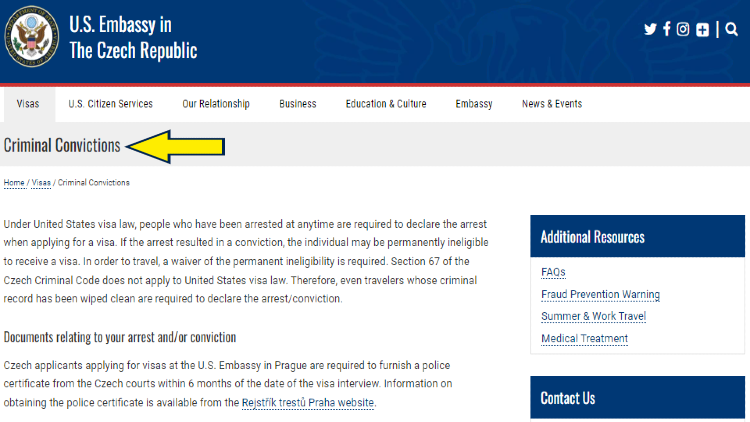
The U.S. embassy for countries where travel is permitted provides information on obtaining travel visas.
The issue of a felon getting a visa will depend entirely on the country they wish to get a visa. Visas are similar to work permits and allow an individual to spend a specific period of time in a foreign country for purposes of work or school. The visa will be awarded by the country the individual wants to go to, rather than their country of origin.
For example, Americans hoping to get a work visa in Austria will need to obtain their Visa through the Austrian government, rather than the U.S. government.
The issue of a felon getting a visa will also depend on the issue of, do countries share criminal records, which most do. Almost all countries that offer visas will perform a criminal background check on the individual by working with their home country.
This means that individuals applying for a visa to a country in Europe will have their criminal records examined by this country.
Whether or not a felon can get a visa will depend entirely on the country’s laws. Some countries will not allow anyone convicted of a felony whereas others will allow individuals convicted of certain felonies but not others. Individuals should research the visa requirements of the country they want to obtain a visa from to get a better idea.
Mexico Travel Restrictions
When it comes to Mexico travel restrictions specifically, there are a few things that individuals should consider. Mexico’s travel restrictions do not include specific criminal history restrictions and instead only consider serious crimes as a reason to deny entry.6
Although this is somewhat subjective this generally includes violent crimes, sexual crimes, and crimes against children.
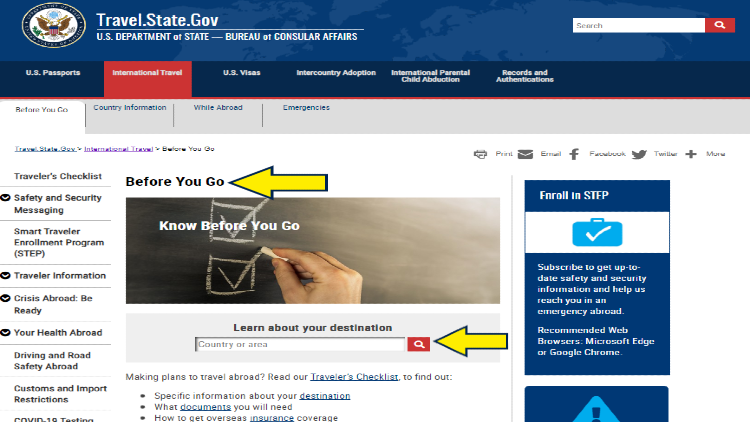
The State Department provides a “before you go” feature that allows anyone to check the conditions and requirements of countries they plan to visit.
Individuals should always use the State Department ‘Before You Go,’ tool to learn more information about various restrictions in international destinations.7
Does U.S. Share Criminal Records With Mexico?
Many people will be wondering how the Mexican government is even aware of an American criminal history record and will be wondering, Does U.S. share criminal records with Mexico?
The answer is yes, but it is done indirectly. Almost every country on the planet uses INTERPOL as a way to perform criminal history checks on visitors.8
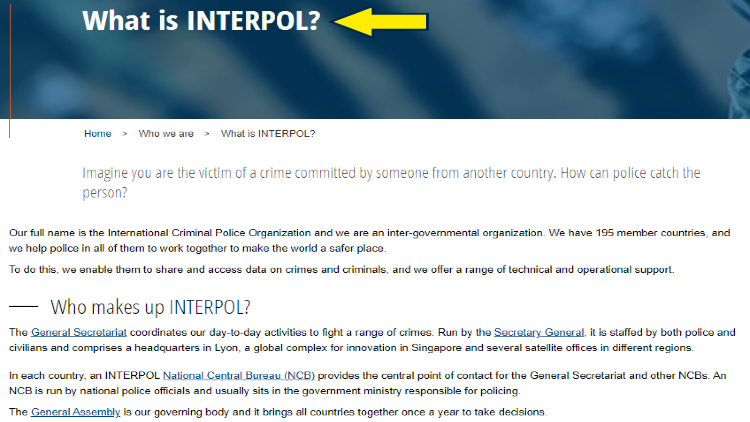
The international police collects and shares information with other countries about criminal activity.
INTERPOL is an international law enforcement agency that maintains international databases that governments can use.
Can You Travel to Mexico With Drug Conviction?
When asking can you travel to Mexico with a drug conviction, the answer is no. The country explicitly forbids people who have been convicted of “drug related crimes” to enter.
As long as the individual has not been convicted of drug trafficking, they should be able to acquire a passport, but they will not be able to enter Mexico.
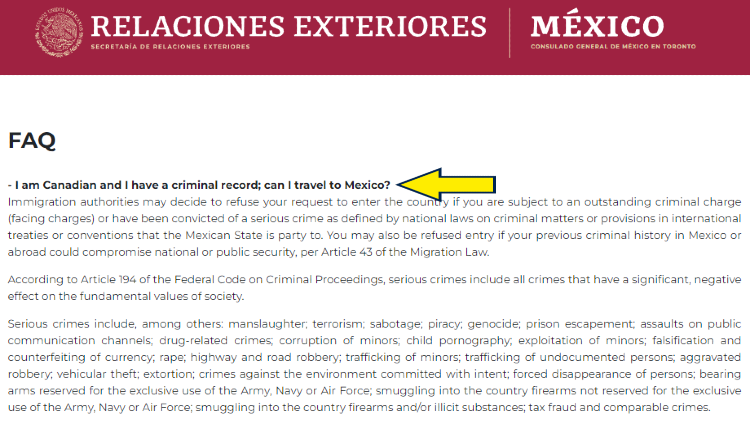
Mexico considers drug-related crimes, robbery, and a number of other felonies as ground to prevent entry into the country.
As far as drug convictions and travel are concerned, it always depends on the country.
Denied Entry to Mexico
Those who have been denied entry to Mexico or another nation might be wondering what their options are if they have any at all. Unfortunately, entry to a foreign nation is not a right, and countries are actually able to deny entry for any reason.
Although it is sometimes possible to appeal this decision, especially if it was the result of a mistake, there is usually little that can be done and the individual will be turned away at the border and will need to return to their country of origin.
Felony Travel Restrictions for Mexico
Mexico will not allow convicted felons (of serious crimes) to enter their country.
The best thing that individuals can do is to perform a background check on themselves before they go using the search bar at the top of this page or possibly a federal background check such as those performed by the FBI,9 in order to know exactly what is on their criminal history.
This way, individuals can be better prepared and fix any mistakes that could cause them to be denied entry.
What Is Considered a Felony in Mexico?
It’s always a good idea for individuals to familiarize themselves with foreign nations’ laws for safety reasons.
Those wondering what is considered a felony in Mexico can use the explanation of the Mexican penal system published by the Texas Attorney general to learn more about the laws in the country.10
Also, the State Department outlines criminal convictions that can prevent entry.
Can a Convicted Felon Leave the Country?
So, can a convicted felon leave the country? Usually, yes. As mentioned the main thing that individuals will need to worry about is if they have been convicted of drug trafficking, in which case they will be denied a passport. However, any other felony will not be an automatic disqualifier.
Although this may surprise a lot of people, this is actually a right protected by the 5th amendment.11
When it comes to felons entering other countries, the answer is far more complicated. Individuals will need to do research as to what the entry and exit requirements are for any foreign nation that they plan on visiting, even if they are only planning on visiting for a short amount of time.
Many countries have specific regulations regarding the criminal history of individuals entering their country.
Individuals can use the list below to learn about some of the entry requirements to various vacation destinations.
| Travel Destination | Entry Requirements |
| Can a felon go to Jamaica? | Felons can travel to Jamaica, with a few basic restrictions:
The individual’s passport must be valid for 6 months before the travel date.
Individuals will need to clear their financial status with the Jamaican government.
Individuals will also need a return ticket before they travel.
Individuals can be denied entry if they have an excessive criminal history.
Individuals with criminal records can only remain in the country for 90 days. |
| Can a felon travel to Belize? | Individuals with felony records planning to travel to Belize can do so easily, assuming they have a valid passport.
Belize does not perform criminal history checks on individuals staying in the country for less than 30 days
Stays of more than 30 days require a visa and a criminal history check. |
| Can a felon go on a cruise to the Caribbean? | Whether or not a felon can go on a cruise will depend on where the cruise is going within the Caribbean. Although most Caribbean countries do not have strict entry requirements.
Individuals with felony records should check the entry requirements of all the countries the cruise will be visiting to see if they have been convicted of a crime that will cause their entry to be denied. |
| Can a felon go on a cruise to Alaska? | Almost all felons will be able to go on a cruise to Alaska as long as they do not have any warrants, are not on parole, and are not on probation.
Most cruises to Alaska will not require individuals to have a passport and requirements will be largely decided by the company operating the cruise. |
| Can I travel to Mexico with pending charges? | Individuals can sometimes travel to Mexico with pending charges on their records.
Similar to convictions, Mexican border officials can choose to deny entry to individuals who have criminal charges pending or serious criminal conventions on their records. |
| Can you go to Bali with a felony? | Individuals with a felony should have no problems entering Bali unless they have a federal warrant or something similar which would cause them to be stopped by the TSA at the airport before even boarding the plane. |
| Does Aruba allow felons? | Individuals with criminal records are able to enter Aruba unless they have committed and been convicted of a crime in Aruba.
Individuals who are able to obtain a passport are able to enter Aruba. |
| Can a felon travel to Canada? | Canada has stricter entry requirements when it comes to individuals with criminal records.
Individuals with a felony criminal record of any kind will be denied entry into Canada.
In order to enter Canada with a felony record individuals will need to obtain special permission from the Canadian government prior to the individual travel dates. |
| Can a felon go on a cruise to the Bahamas? | Individuals with criminal records of any kind, including felony records should have no problems entering the Bahamas do not have criminal record-related restrictions for tourists. |
| Can a felon get a passport to Mexico for a cruise? | Individuals who are entering Mexico for any reason will need a United States passport.
Individuals can be denied entry to Mexico due to having an extensive criminal history. |
Can a Felon Go on a Cruise?
The question of can a felon go on a cruise is quite common since cruises tend to spend most of their time in international waters and individuals are not always forced to enter the various countries where the cruise will stop at. However, individuals should research the entry requirements for any of the countries they will be stopping at.
Many countries will technically not allow individuals that are unable to enter the country to be in the country’s waters, so simply remaining on the cruise ship is often not allowed.
Aside from checking the entry requirements for the cruise’s destinations, individuals should also check the policy of the company operating the cruise which sometimes will not allow individuals with certain criminal records to be on the cruise or will not allow the individual on certain routes.
Can a Felon Go on a Disney Cruise?
Although it is possible, Disney cruises reserve the right to deny individuals entry onto a cruise due to their criminal history. Individuals should contact Disney cruises for specific criminal history information.
Can Felons Go on Carnival Cruises?
Similar to Disney, Carnival does not outright ban any particular criminal conviction but does reserve the right to deny passengers entry for any reason, including their criminal history.
Can Someone on Probation Go on a Cruise?
Individuals who are on probation are usually not permitted to travel at all, so a cruise that is visiting an international destination is usually out of the question. However, individuals can get permission from their probation officer to go on a cruise in rare cases.
Can a Felon Get a Passport to Mexico?
When it comes to can a felon get a passport to Mexico, the majority of felonies will not prevent an individual from obtaining a United States passport. As far as getting entry to Mexico is concerned, it will depend largely on the nature of any crimes if the individual is allowed entry.
Completing a sentence can be an extremely exciting time and most individuals will be aching to go on a much-needed vacation. However, before booking any expensive trips individuals should be able to answer questions like can a felon get a passport to Mexico, to prevent any frustrating surprises from happening at the border.
Frequently Asked Questions About Can a Felon Get a Passport to Mexico








